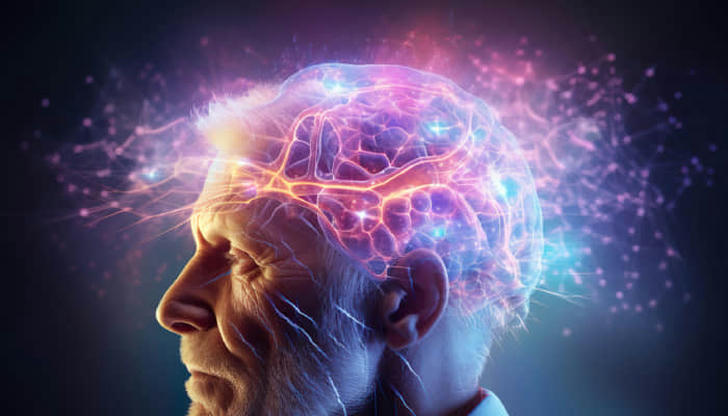Recognizing Memory Loss: 6 Early Signs of Alzheimer's Disease

Are you noticing subtle changes in your memory lately? Perhaps forgetting familiar names or struggling to recall recent events? These could be early signs of Alzheimer's disease, a condition that affects millions worldwide.
This article has created a list of warning signs and contrasted them with typical age-related changes, helping you distinguish between normal forgetfulness and potential indicators of Alzheimer's disease.
While Alzheimer's disease has no cure, early detection opens doors to various treatment options and lifestyle adjustments that can significantly improve quality of life and slow down the disease's advancement. Keep reading and take charge of your cognitive health journey.
What Are the Key Factors Contributing to Alzheimer's Disease Development?

Alzheimer's disease is a progressive neurological disorder that affects the brain, leading to memory loss and cognitive decline. It is the most common cause of dementia, accounting for around 60-70% of dementia cases.
The exact cause of Alzheimer's disease is not fully understood, but it is believed to involve a combination of genetic, environmental, and lifestyle factors. Some of the key factors implicated in Alzheimer's disease development include:
1.Amyloid plaques: These are abnormal clusters of protein fragments called beta-amyloid that accumulate between nerve cells in the brain. These plaques disrupt communication between neurons and contribute to cell death.
2.Neurofibrillary tangles: Inside neurons, tau proteins can become tangled and twisted, leading to the formation of neurofibrillary tangles. These tangles impair the transportation of nutrients and other essential substances within neurons, contributing to cell malfunction and death.
3.Inflammation: Chronic inflammation in the brain is associated with Alzheimer's disease. It is believed that immune system responses and inflammatory processes may contribute to neuronal damage and cognitive decline.
4.Genetic factors: While most cases of Alzheimer's disease are sporadic, meaning they occur without a clear family history, certain genetic mutations can increase the risk of developing the disease. The most well-known genetic risk factor is the APOE ε4 allele, which is associated with a higher risk of developing Alzheimer's.
5.Environmental and lifestyle factors: Factors such as cardiovascular health, physical activity, diet, social engagement, and cognitive stimulation may influence the risk of Alzheimer's disease. For example, conditions that affect heart health, like high blood pressure, diabetes, and high cholesterol, are also considered risk factors for Alzheimer's.
6 Early Signs of Alzheimer's Disease:
1. Forgetfulness and memory loss

Forgetfulness and memory loss are often the first noticeable symptoms. This includes forgetting recent events, such as appointments or conversations, repeating questions, and relying heavily on memory aids like sticky notes or reminders on electronic devices. People may also have difficulty recalling names of familiar people or objects.
2. Difficulty with familiar tasks
Difficulty with familiar tasks, such as cooking, managing finances, or following a familiar recipe, can become apparent. Individuals may struggle to follow familiar routines or complete tasks they've done for years without difficulty. This can lead to frustration and a sense of helplessness.
3. Disorientation

Disorientation is another common early sign, where individuals may become lost in familiar places, forget the day or date, or have trouble recognizing faces, including those of close family members. This can lead to feelings of confusion, anxiety, and isolation as they struggle to navigate their surroundings and interactions.
4. Mood swings

Mood swings can occur, with individuals experiencing changes in temperament, becoming more irritable, anxious, or depressed without apparent cause. These mood shifts may be sudden and unexplained, affecting daily interactions and relationships.
5. Trouble finding words

Trouble finding words is another early sign, where individuals struggle to express themselves verbally or in writing. They may pause frequently during conversations, use vague or incorrect words, or have difficulty following and participating in discussions. This can lead to frustration and social withdrawal.
6. Changes in sleep patterns

Changes in sleep patterns may also emerge, with individuals experiencing disturbances in their sleep-wake cycle. They may have difficulty falling asleep, staying asleep, or experience frequent awakenings during the night. Alternatively, some individuals may sleep excessively during the day while experiencing insomnia at night. These changes can impact overall well-being and cognitive function.
Coping Strategies and Support
Lifestyle modifications play a crucial role in supporting cognitive health. This includes:
1.Healthy diet and exercise: Adopting a balanced diet rich in nutrients like omega-3 fatty acids, antioxidants, and vitamins can promote brain health. Regular physical exercise, such as aerobic activities and strength training, helps improve blood flow to the brain and supports overall cognitive function.
2.Mental stimulation: Engaging in mentally stimulating activities, such as puzzles, games, learning new skills, and social interactions, can help maintain cognitive abilities and reduce the risk of cognitive decline.
Various support resources are available for individuals and caregivers facing Alzheimer's disease:
1.Support groups: Joining support groups provides individuals with Alzheimer's and their caregivers an opportunity to connect with others facing similar challenges. These groups offer emotional support, information sharing, and practical tips for coping with daily life.
2.Caregiver resources and respite care: Caregivers play a vital role in supporting individuals with Alzheimer's. Accessing caregiver resources, such as educational materials, training programs, and counseling services, can provide valuable assistance and guidance. Respite care services also offer caregivers a temporary break from caregiving responsibilities, allowing them to recharge and maintain their well-being.
Seeking Medical Evaluation
Knowing when to see a doctor is crucial for early diagnosis and intervention. It's recommended to consult a healthcare professional if you or a loved one experience:
• Persistent memory loss and confusion that interfere with daily life
• Difficulty performing familiar tasks, such as managing finances or following recipes
• Changes in mood, behavior, or personality
• Challenges with language, such as trouble finding words or repeating statements
• Disorientation to time and place, getting lost in familiar surroundings
Diagnostic tests and assessments are essential for confirming Alzheimer's disease. These may include:
• Comprehensive medical history and physical examination
• Cognitive assessments to evaluate memory, thinking, and problem-solving skills
• Neurological tests to assess brain function
• Brain imaging scans, such as MRI or CT scans, to detect changes in brain structure and rule out other conditions
• Laboratory tests, including blood tests, to identify underlying causes or contributing factors
Healthcare professionals, including neurologists, geriatricians, and psychiatrists, play a critical role in diagnosing Alzheimer's disease and providing ongoing care. They collaborate with patients and caregivers to develop personalized treatment plans, offer support and guidance, and monitor disease progression.
